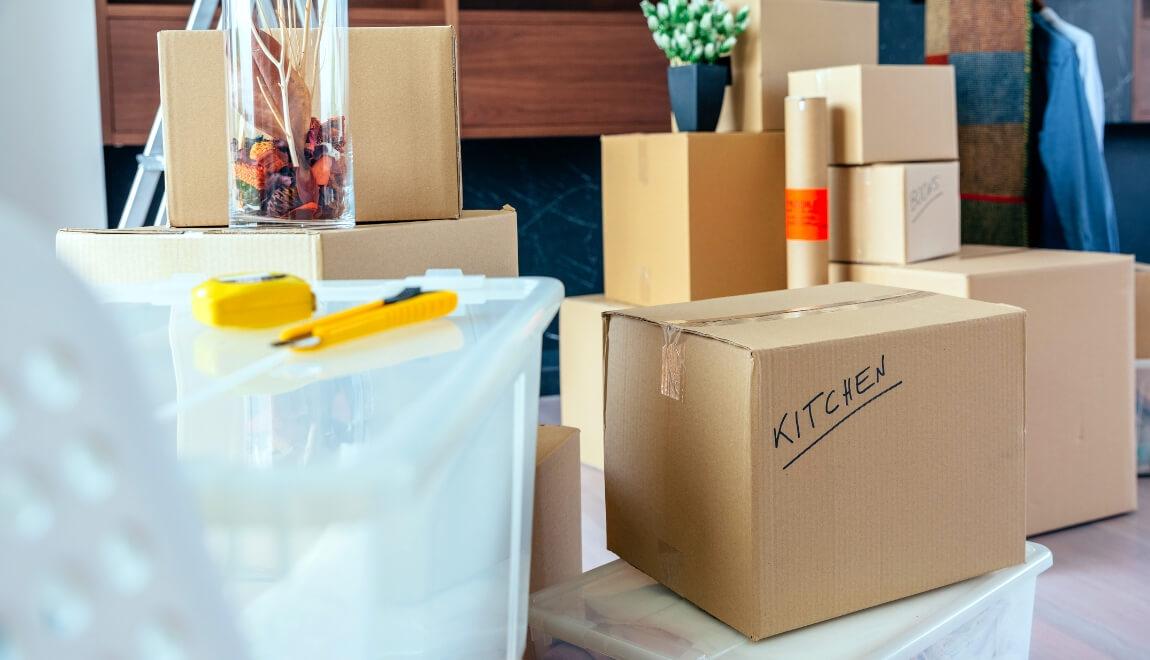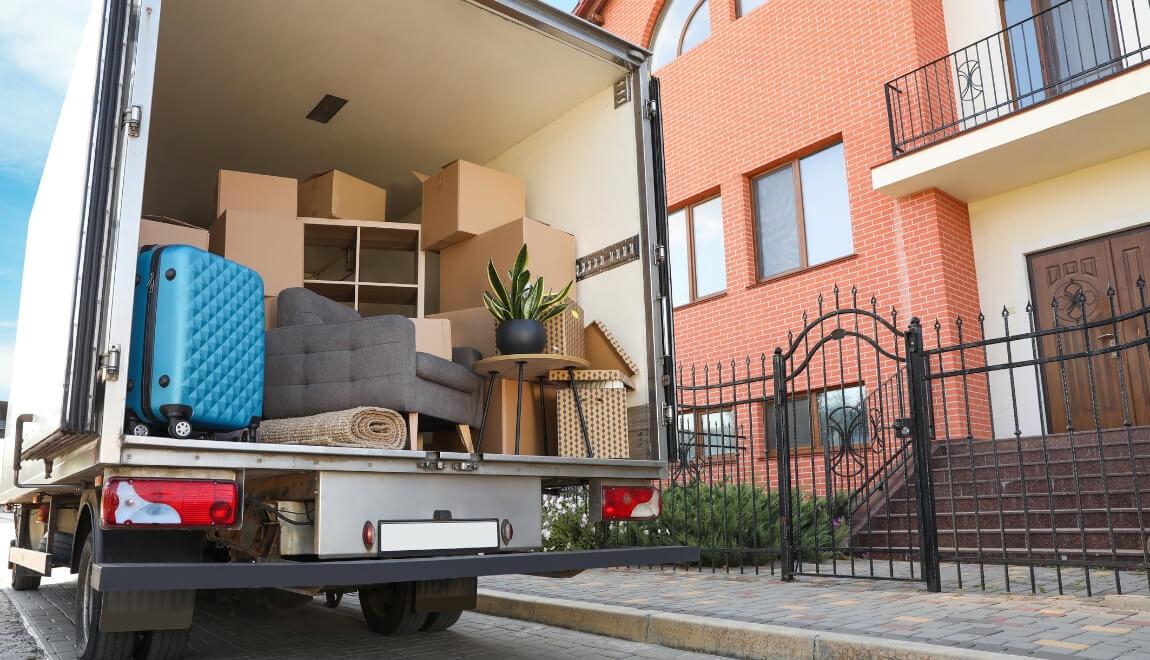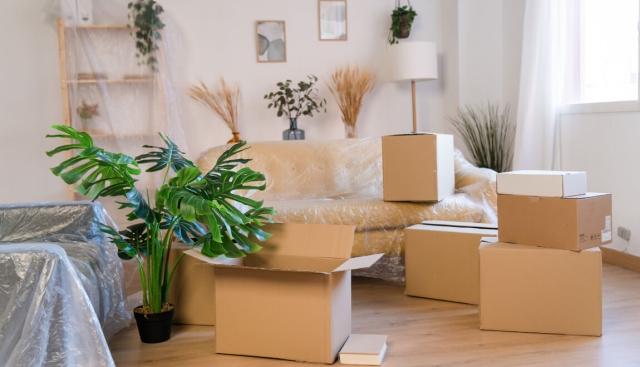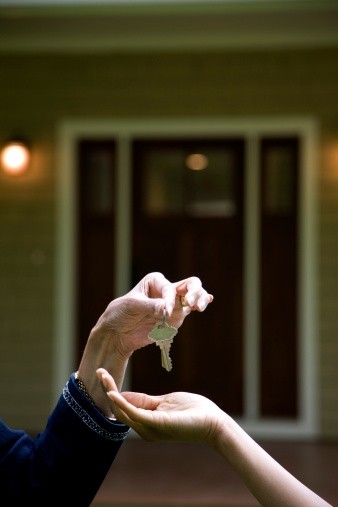It doesn’t matter whether you’re moving out of a tiny studio apartment or a sprawling three-bedroom house — moving requires serious preparation. There’s so much to consider, from giving your property manager notice to transferring utilities to packing your belongings in a way that you don’t end up with a box full of shattered coffee mugs. Are you wondering where to begin? Here are 10 things to do before moving day.
1. Create a Moving Checklist
Before things get chaotic (and they will), make a list of everything you need to do before, during, and after your move. If you’re not sure what to include, here’s a general timeline of what to do and when:
Three months before moving: Review your lease agreement to see how much notice you need to give before moving out. Some apartment communities require 30 days, while others require 60 or even 90 days. Many rentals require written notice, so be sure you know when and how to alert your property manager that you’re moving out.
Two months before moving: Start apartment hunting! Perhaps you’ve been browsing, but now it’s time to get serious. Schedule some tours, ask a lot of questions, and start submitting rental applications. This process might take some time, so begin apartment hunting at least one or two months before you plan to move.
Two weeks before moving: Now is the time to transfer utilities, notify your renters insurance provider of your move, and fill out the change of address form at USPS.com. In the weeks before moving, you’ll want to deep clean your apartment, make any repairs such as patching holes, and schedule your move-out walk-through.
2. Prepare an Apartment Packing List
Yes, you’ll need boxes and tape. But there’s much more you might need as you start to pack up your apartment. Making a list and making sure you have everything you need will save you time and several trips to the store. Here’s an example of a packing checklist:
__Boxes
- Clothing boxes
- TV/electronic equipment boxes
- Appliance boxes
- Small boxes (for heavy items like books
__Packing Tape
__Markers
__Blankets
__Bubble wrap
__Labels
__Tissue paper
__Rope
__Dust masks
__Garbage bags
__Furniture covers
__Hand truck
__Box cutter
__Screwdriver
__Allen wrench
__Hammer
__Level (if you need to replace items you removed, like cabinet doors or shelves)
__Paint and brushes (if you need to repaint your apartment to its original color)
__Towels
__Screws
__Nails
__Plastic bags
__Clothes hangers

3. Set Aside a Moving Budget
Moving is expensive, and it could come with a variety of unexpected expenses. You’ll probably be required to pay for your final month at your current apartment unless you paid first and last month’s rent up front. The security deposit is different from your last month’s rent payment, and it can’t be used to cover your final month. You’ll likely need to pay move-in fees at your new place, in addition to various moving expenses (such as paying a moving company or ordering pizza for your friends helping you move). You may find you need additional furniture in your new apartment, or you might need to replace items broken during the move (goodbye, shattered coffee mugs).
4. Evaluate Your Furniture
Think about your new space and what will fit where. If your oversize sofa won’t fit in your new studio, it’s probably better to sell or donate it. On the flip side, if you have a tiny couch that worked great in your small apartment, it might get swallowed up by your new spacious loft.
5. Organize and Purge Before Packing
There’s nothing worse than opening a box in a new place, holding up an item, and wondering why you decided to keep it, let alone pack it and haul it across town (or worse, across the country). Before packing anything, sort your belongings into three categories: keep, toss, and donate. If you’re not sure about something, ask yourself if the item is worth packing and moving. Do you really want that singing fish wall plaque you found at a thrift store hanging in your new apartment?
6. Find Reliable Movers
Don’t wait until the last minute to find movers, especially if you’re moving during the summer. Moving companies get booked up quickly during this busy time, so if you wait until the last minute, you might have difficulty finding a company available for your move-out date. Start looking several weeks in advance and do your research. Check references and read the reviews for the moving companies you’re considering. Make sure they are properly licensed and insured. Ask friends and family for recommendations, as well. Get several quotes before making a decision.
If you’re going to rely on friends and family to help you move, ask them now to make sure they are available. You don’t want to find out at the last minute that your cousin with the truck will be away on vacation when you need to move. If you’re going to rent a truck, you’ll still need people to help you load it, so ask for volunteers well in advance to make sure you have the support you need.

7. Check Your Lease for Moving Clauses
Hopefully, you already checked your lease and followed the steps to notify your property manager about not renewing your lease within the required timeframe. But there could be additional moving clauses in your lease. For example, your lease might specify the time you need to be moved out, such as “by 12 pm on the final day of the lease.” The lease could also include information about the requirements for getting your security deposit back, and where/how to return the keys. If you don’t leave the apartment in the condition specified, or if you forget to return the keys, you could be charged a cleaning fee or a fee to change the locks.
8. Pack Your Belongings
Since you’ve already gathered your supplies and sorted through your belongings, the actual packing should be easy. There’s an art to packing a box and making sure your boxes aren’t too heavy or so lightly packed that everything rattles around and ends up broken. Here are some tips:
Wrap breakables carefully with tissue paper or bubble wrap. Use dish towels to pad breakable items and fill empty spaces.
Pack heavy items in small boxes to keep them manageable.
Go room by room and pack by “zone.” For example, when packing up the living room, start with the walls. Then move on to the shelves. Then tackle the electronics.
Make a checklist that corresponds with each box. As you pack, list the items you put in the box on your checklist. Label the box. If you want to get very organized, color code your boxes with stickers. For example, blue stickers for the kitchen boxes, red for the living room.
9. Clean Everything and Take Pictures
Your goal is to get your apartment looking as close to the way it looked when you moved in as possible. While some normal wear and tear is expected, how you leave your apartment could make the difference between getting your security deposit back — or not. After you clean (making sure to patch up any holes in the walls and cleaning any spots on the carpets), take photos of every room. This way, you have proof of the condition of the apartment, just in case the property owner tries to keep your security deposit for cleaning.
10. Notify Everyone
Now that you have a new address, you’ll want to make sure your bank, credit card companies, loan companies, the DMV, your great aunt in Sheboygan, and anyone else you stay in contact with has your new address.
Moving can be a stressful experience, but with this moving checklist, you can make sure it goes off without a hitch. With the right preparation, you can make this the best move yet.






